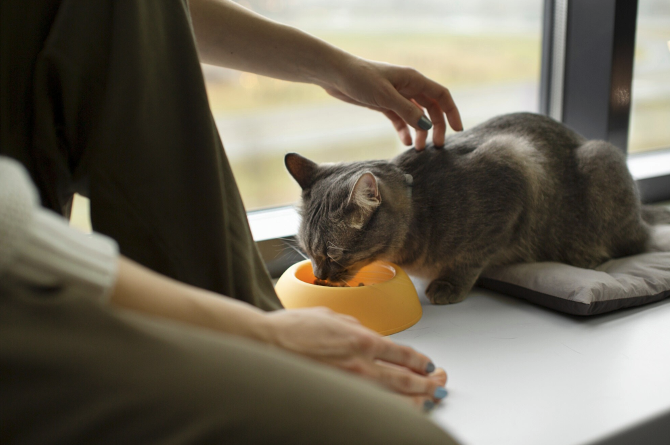
Cats are true carnivores which means that the bulk of their diet is made up of a protein source coming from meat. Differing from dogs, they have specific nutritional needs which can be fulfilled only to the greatest extent. Many of the foods marketed for cats are complete and balanced meals and will offer the cat all the nutrients it needs to thrive. Knowing what your cat requires will assist you in making proper choices regarding your cat’s nutrition.
Different cat breeds can largely require some differing nutrients, depending on their size, metabolism, and potential for a series of diseases. For instance, big breeds such as Maine Coons will need more protein and some nutrients in their diets so they can effectively build muscles and or tissues of their joints. Whereas, cats that belong to the small breed like the Singapura might require a diet that preserves their energy and a few extra calories.
Some breeds are also genetically predisposed to health problems that can be mitigated, as well, with proper supplementation. And then there are Siamese cats, one of which is known to have dental problems, which is why calcium and vitamin D are essential to maintaining a healthy set of jaws. It is important to understand these breed-specific needs before providing your cat vitamins and supplements.
1. Vitamin A: This vitamin is greatly important for eyesight, immune function, and skin health. Vitamin A must come from animal sources other than cats and can’t convert beta-carotene from plant sources. It can lead to serious medical problems.
2. B Vitamins: The B vitamins are very important in energy metabolism and overall health. Niacin (B3) promotes good skin health and digestion, and thiamine (B1), is particularly important for nerves.
3. Vitamin D: Cats can make a little vitamin D on their own from sun exposure, but get most of it in their diet. They are essential for calcium absorption and bone health, to this vitamin.
4. Vitamin E: A fundamental antioxidant, vitamin E protects cells from oxidative damage. It also supports immune and skin health.
Omega 3 and Omega 6 fatty acids are the 2 fatty acids necessary for keeping your skin and coat shiny. On the other hand, they also help in reducing inflammation as well as heart health. Omega-3s are popular for cats from fish oil while Omega-6s are found in other vegetable oils.
In addition to vitamins, certain minerals are essential for your cat’s health:
1. Calcium and phosphorus: They're important for keeping bones healthy as they grow. This can make you prone to some skeletal issues.
2. Potassium: Potassium is often overlooked – important for muscle function and heart health – but it is important for overall well-being.
3. Taurine: Taurine is an amino acid essential to heart function, vision, and reproduction: if cats do not have enough, they cannot produce enough on their own.
While most cats receive adequate nutrition from high-quality commercial cat food, there are circumstances where supplements may be beneficial:
• Age: So older cats may need additional vitamins and minerals to help support aging joints and general health.
• Health conditions: Those with certain health problems will require particular supplements because of the extent of their nutrient lack or as a part of Injury treatment.
• Dietary restrictions: Sometimes your cat may be on a special diet restricted by allergies or for other reasons, so it may need extra nutrients.
When it comes to introducing vitamins and supplements to your cat’s diet, it is important to talk to your vet first. They have first-hand knowledge of their breeds, age, health condition, or any other prevailing lifestyle of your cat to best determine what your cat requires. That is why supplementation should not be taken in excess as it can result in toxicity or imbalance, therefore consulting a health professional is advised.
It is very important to be aware of the vitamins and supplements your cat may require for further adequate and healthy coexistence. As it has been observed that different breeds of cats may require different nutritional needs, this would probably be the best bet as you would consult with your vet on the best nutritional support your particular cat may benefit from.